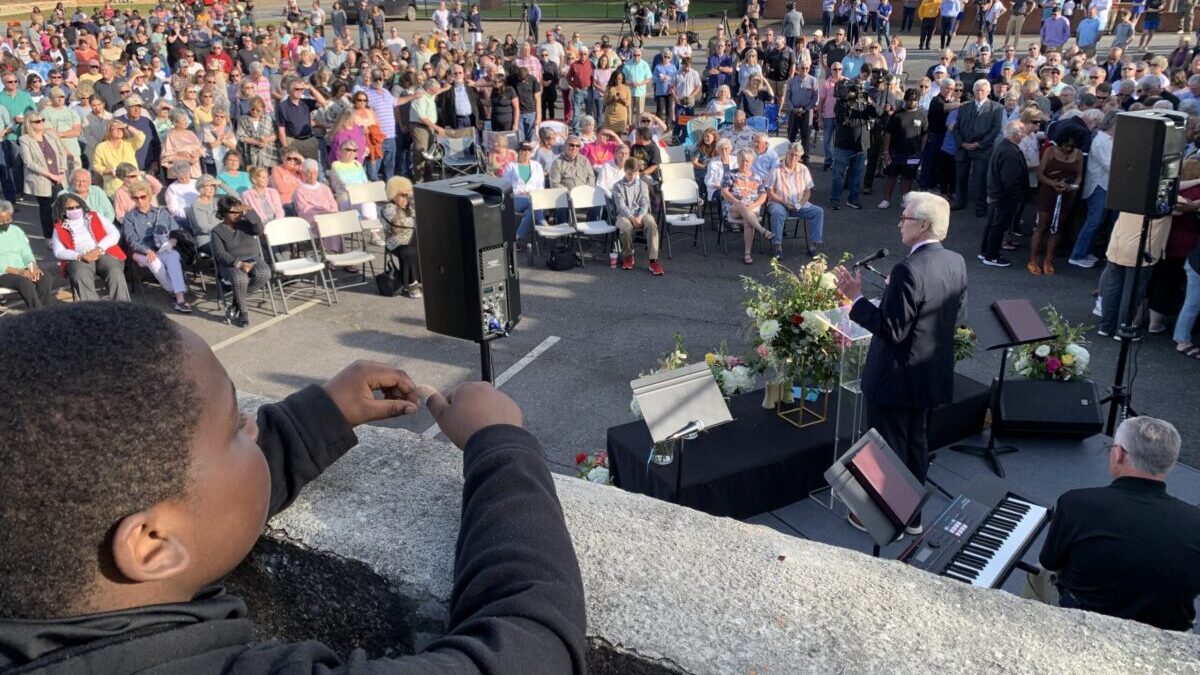The cellphone rang one too many times. But it won’t happen again, at least not from that phone.
It didn’t go down easy, but my friend hacked and hacked and hacked until he busted it into 10 or so isolated pieces. The anger and frustration seeped from his body as he put down the ax and stared at the chopping block.
“Wow, that felt good,” he said, more relaxed than he had been in months. His breath evened out; his nerves unraveled. He could actually focus and think clearly.
And then the guilt hit. How could he lose control like that?
While his life circumstances are not working out like he planned, he should keep it together because “God doesn’t give us more than we can handle,” right? At least, that’s what some have told him.
And even though the dreams he and his wife once held dear are now shattered across several states and trapped inside a couple of prison cells, he rarely finds anyone willing to listen. Most feed him a trite attempt at encouragement with a little Scripture tossed in, assure him it will all work out and pat him on the shoulder as they hurry off to their next fun adventure.
He struggles to understand why God would let him suffer like this. Maybe he isn’t doing something right, he ponders. After all, the believers around him seem to have it all together while he fights exhaustion and disappointment daily.
He is most certainly overwhelmed, but the grandbabies keep him going, he shared. He’s all they have and he’s determined for them to break the cycle.
As he cries out to God for the energy to make it through one more day, he lets it all go and acknowledges he’s depleted. He has nothing left.
When we have noting left
It is at that moment — when we officially have nothing left — that Christ’s strength is magnified. Until then, we are relying on ourselves.
In 2 Corinthians 12:9–10, Paul says: “And He has said to me ‘My grace is sufficient for you, for power is perfected in weakness.’ …
“Therefore I am well content with weaknesses, with insults, with distresses, with persecutions, with difficulties, for Christ’s sake; for when I am weak, then I am strong.”
The concept that “God doesn’t give us more than we can handle” isn’t biblical.
This phrase is commonly referenced in the context of suffering, but it is actually a misrepresentation of 1 Corinthians 10:13, which deals with temptation, not suffering.
Not alone
The fact is, we will face more than we can handle at some point in our life, and possibly more than once.
When these times come, the pain will be sharp and real. But no matter the depth of our predicament, we are not alone if we have accepted the blood-bought gift of grace provided by our Lord and Savior Jesus Christ.
2 Corinthians 4:7–11 reminds us “the surpassing greatness of the power will be of God and not from ourselves; we are afflicted in every way, but not crushed; perplexed, but not despairing; persecuted, but not forsaken; struck down, but not destroyed.”








